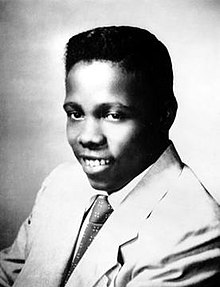Got a boo-boo? Don't worry....
.... it's all better now!
Mostly about my backyard chickens. (Boring, I know), but there are a lot of us out here. Mine are only kept as pampered pets. I could eat a neighbor's chicken, but not MINE. There may be a comment on current events only if I get riled up enough. And there will always be a cartoon or a joke to cheer us. I promise to try my very best to respond to comments. Now I have to figure out how this blogger thingy works....
| Johnny Ace | |
|---|---|

Ace in 1954
| |
| Background information | |
| Birth name | John Marshall Alexander, Jr. |
| Born | June 9, 1929 Memphis, Tennessee, United States |
| Died | December 25, 1954 (aged 25) Houston, Texas, United States |
| Genres | R&B |
| Years active | 1949–1954 |
| Labels | Duke Records |
1. WHY?Why do men's clothes have buttons on the right while women's clothes have buttons on the left?BECAUSEWhen buttons were invented, they were very expensive and worn primarily by the rich. Since most people are right-handed, it is easier to push buttons on the right through holes on the left. Because wealthy women were dressed by maids, dressmakers put the buttons on the maid's right. And that's where women's buttons have remained since.2. WHY?Why do ships and aircraft use 'mayday' as their call for help?BECAUSEThis comes from the French word ‘m'aidez’ - meaning 'help me' - and it is pronounced, approximately, 'mayday'.3. WHY?Why are zero scores in tennis called 'love'?BECAUSEIn France, where tennis became popular, the round zero on the scoreboard looked like an egg and was called 'l'oeuf', which is French for 'the egg'. When tennis was introduced in the US, Americans mispronounced it to 'love'.4. WHY?Why do X's at the end of a letter signify kisses?BECAUSEIn the Middle Ages, when many people were unable to read or write, documents were often signed using an X. Kissing the X represented an oath to fulfill obligations specified in the document. The X and the kiss eventually became synonymous.5. WHY?Why is shifting responsibility to someone else called passing the buck'?BECAUSEIn card games, it was once customary to pass an item, called a buck, from player to player to indicate whose turn it was to deal. If a player did not wish to assume the responsibility of dealing, he would 'pass the buck' to the next player.6. WHY?Why do people clink their glasses before drinking a toast?BECAUSEIn earlier times, it used to be common for someone to try to kill an enemy by offering him a poisoned drink. To prove to a guest that a drink was safe, it became customary for a guest to pour a small amount of his drink into the glass of the host. Both men would drink it simultaneously. When a guest trusted his host, he would only touch or clink the host's glass with his own.7. WHY?Why are people in the public eye said to be ‘in the limelight'?BECAUSEInvented in 1825, limelight was used in lighthouses and theatres by burning a cylinder of lime which produced a brilliant light. In the theatre, a performer 'in the limelight' was the center of attention.8. WHY?Why is someone, who is feeling great, 'on cloud nine'?BECAUSETypes of clouds are numbered according to the altitudes they attain, with nine being the highest cloud. If someone is said to be on cloud nine, that person is floating well above worldly cares.9. WHY?In golf, where did the term 'caddie' come from?BECAUSEWhen Mary Queen of Scots went to France as a young girl, Louis, King of France, learned that she loved the Scottish game 'golf'. He had the first course outside of Scotland built for her enjoyment. To make sure she was properly chaperoned (and guarded) while she played, Louis hired cadets from a military school to accompany her. Mary liked this a lot and, when she returned to Scotland (not a very good idea in the long run), she took the practice with her. In French, the word cadet is pronounced 'ca-day' and the Scots changed it into caddie.10. WHY?Why are many coin collection jar banks shaped like pigs?BECAUSELong ago, dishes and cookware in Europe were made of dense orange clay called 'pygg'. When people saved coins in jars made of this clay, the jars became known as 'pygg banks'. When an English potter misunderstood the word, he made a container that resembled a pig and it caught on.